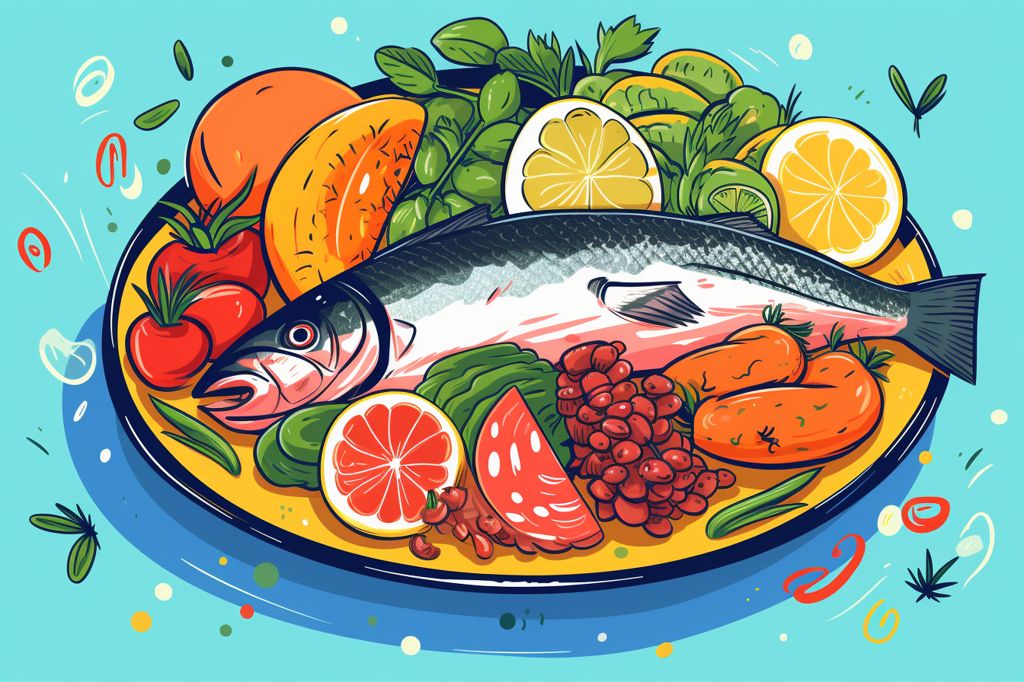Asthma is a chronic disease that affects 2.7 million Australians, making it the fourth most common chronic disease in the country. Due to its inflammatory nature, researchers have been looking into the potential links between dietary choices and asthma symptoms. Understanding the connection between nutrition and asthma can help individuals make informed decisions to improve their quality of life.
The Mediterranean Diet: A Breath of Fresh Air
Studies show that a Mediterranean-style diet, which is rich in fruits, vegetables, and oily fish, can reduce wheezing in children, regardless of asthma diagnosis. This diet has positive effects that persist, regardless of a child’s body-mass index (BMI) or socioeconomic status. For adults with asthma, consuming a diet high in fruits and vegetables has also proven beneficial. Studies show that individuals who consume fewer fruits and vegetables experience worse lung function and are twice as likely to have an asthma attack.
The Mediterranean diet is high in antioxidants and soluble fiber, which contribute to its anti-inflammatory properties. Although the diet is also high in omega-3 fatty acids, a review of five studies found no direct benefits of omega-3 intake for adults with asthma. However, consuming omega-3-rich foods like oily fish, flaxseeds, chia seeds, and walnuts can offer other health benefits, such as reducing the risk of heart disease.
Saturated Fats, Sugar, and Red Meat: Asthma’s Adversaries
Diets high in saturated fats, sugar, and red meat have been linked to worsening asthma symptoms, including an increase in the number of asthma attacks in adults. Foods high in saturated fats, such as highly processed foods and fast foods, can impact lung function in as little as four hours.
In one study, researchers compared the effects of a meal high in saturated fat to a meal of similar calories but lower in saturated fat. The participants who consumed the high-fat meal experienced reduced lung function and reduced effectiveness of their asthma puffer within four hours. This decline in lung function was likely due to an increase in inflammation, as researchers observed elevated levels of immune cells known as neutrophils around the four-hour mark.
The Dairy Dilemma: Busting the Myth
Contrary to popular belief, dairy products do not worsen asthma symptoms. Although many individuals with asthma report negative effects from consuming dairy, scientific evidence has debunked this notion. In fact, one study involving adults with asthma found that drinking milk was associated with improved lung function.
Embracing a Mediterranean-style diet that is rich in fruits, vegetables, and healthy fats while limiting saturated fats, sugar, and red meat can potentially alleviate asthma symptoms and improve overall lung function. Understanding the impact of dietary choices on asthma can empower individuals to take control of their health and enhance their quality of life.








